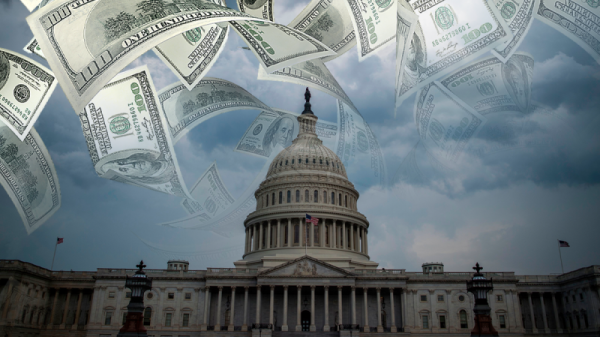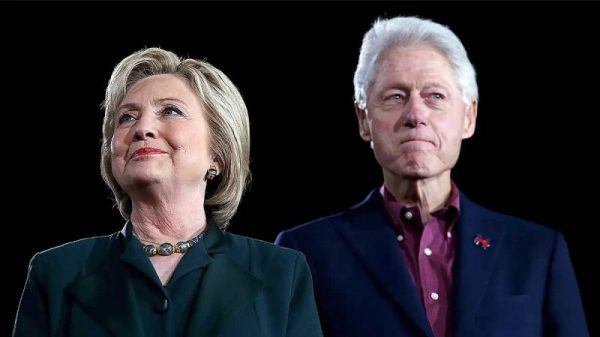Nearly 1 in 3 potential Republican primary voters watched the debate Wednesday at the Ronald Reagan Presidential Library in California, but the performance of the candidates had little impact on the overall race, according to a 538/Washington Post/Ipsos poll taken after the debate.
Thirty-three percent say Florida Gov. Ron DeSantis had the best performance, while 18 percent say the same for former South Carolina governor Nikki Haley and 15 percent for entrepreneur Vivek Ramaswamy. But this is not a slam dunk for DeSantis, as most of those who say he performed best already had a favorable opinion of him, according to our survey before the debate.
Asked whose performance was the worst, 24 percent say former New Jersey governor Chris Christie, 20 percent name former vice president Mike Pence, 11 percent name North Dakota Gov. Doug Burgum and 10 percent pick Ramaswamy.
The poll also asked potential Republican primary voters whether they were considering supporting each candidate before and after the second debate. But there was not much movement on this question with only lower-tier candidates like Burgum and Christie making statistically significant gains.
The share of Republicans considering DeSantis and Haley did tick up four points each, but all other candidates saw even smaller shifts. This is in stark contrast to the first debate in August when our poll found significant increases in the share of potential Republican primary voters considering DeSantis, Haley and Ramaswamy.
Perhaps one reason we did not see more movement in who potential Republican primary voters are considering is because those who watched the first debate were less impressed with the performance of the candidates in the second debate.
Pence, Ramaswamy, Scott, Christie and Haley all received less positive ratings from Republican debate watchers for the September debate than the August one. There was no significant change for DeSantis or Burgum, though the latter saw his ratings go up slightly. DeSantis is the only candidate who had a majority rate him positively for his performance in the second debate.
Notably, however, many potential Republican primary or caucus voters did not tune into this debate. Roughly two-thirds of them did not watch the debate Wednesday.
Instead, over a third of Republican primary voters watched something else on television or cued up a movie while about 2 in 10 spent time with a family member or slept. About 1 in 10 worked while a similar share cleaned or did other housework.
One thing that did not seem to compete for attention from Republican primary voters? The speech former president Donald Trump gave in Michigan. The poll finds 13 percent watched his speech versus 32 percent who watched the debate.
The 538/Washington Post/Ipsos poll was conducted before and after the Republican debate on Sept 27. The pre-debate survey was conducted from Sept. 19 to 26 among a random sample of 5,002 U.S. adults who said they are likely to vote in the Republican primary or caucus in their state in 2024. The error margin was plus or minus 1.6 points. The post-debate wave was conducted on Sept. 27 and 28 among 730 likely Republican primary or caucus voters who said they watched some or all of the debate. The error margin among debate watchers is plus or minus 4.1 points.
The sample was drawn through the Ipsos Knowledge Panel, an ongoing survey panel recruited through random address-based sampling of U.S. households. The study was conducted in both English and Spanish, and the overall adult sample was weighted to match population benchmarks gender by age, race, ethnicity, education, census region, metropolitan status, household income and party identification.
Nearly 1 in 3 potential Republican primary voters watched the debate Wednesday at the Ronald Reagan Presidential Library in California, but the performance of the candidates had little impact on the overall race, according to a 538/Washington Post/Ipsos poll taken after the debate.
Thirty-three percent say Florida Gov. Ron DeSantis had the best performance, while 18 percent say the same for former South Carolina governor Nikki Haley and 15 percent for entrepreneur Vivek Ramaswamy. But this is not a slam dunk for DeSantis, as most of those who say he performed best already had a favorable opinion of him, according to our survey before the debate.
Asked whose performance was the worst, 24 percent say former New Jersey governor Chris Christie, 20 percent name former vice president Mike Pence, 11 percent name North Dakota Gov. Doug Burgum and 10 percent pick Ramaswamy.
The poll also asked potential Republican primary voters whether they were considering supporting each candidate before and after the second debate. But there was not much movement on this question with only lower-tier candidates like Burgum and Christie making statistically significant gains.
The share of Republicans considering DeSantis and Haley did tick up four points each, but all other candidates saw even smaller shifts. This is in stark contrast to the first debate in August when our poll found significant increases in the share of potential Republican primary voters considering DeSantis, Haley and Ramaswamy.
Perhaps one reason we did not see more movement in who potential Republican primary voters are considering is because those who watched the first debate were less impressed with the performance of the candidates in the second debate.
Pence, Ramaswamy, Scott, Christie and Haley all received less positive ratings from Republican debate watchers for the September debate than the August one. There was no significant change for DeSantis or Burgum, though the latter saw his ratings go up slightly. DeSantis is the only candidate who had a majority rate him positively for his performance in the second debate.
Notably, however, many potential Republican primary or caucus voters did not tune into this debate. Roughly two-thirds of them did not watch the debate Wednesday.
Instead, over a third of Republican primary voters watched something else on television or cued up a movie while about 2 in 10 spent time with a family member or slept. About 1 in 10 worked while a similar share cleaned or did other housework.
One thing that did not seem to compete for attention from Republican primary voters? The speech former president Donald Trump gave in Michigan. The poll finds 13 percent watched his speech versus 32 percent who watched the debate.
The 538/Washington Post/Ipsos poll was conducted before and after the Republican debate on Sept 27. The pre-debate survey was conducted from Sept. 19 to 26 among a random sample of 5,002 U.S. adults who said they are likely to vote in the Republican primary or caucus in their state in 2024. The error margin was plus or minus 1.6 points. The post-debate wave was conducted on Sept. 27 and 28 among 730 likely Republican primary or caucus voters who said they watched some or all of the debate. The error margin among debate watchers is plus or minus 4.1 points.
The sample was drawn through the Ipsos Knowledge Panel, an ongoing survey panel recruited through random address-based sampling of U.S. households. The study was conducted in both English and Spanish, and the overall adult sample was weighted to match population benchmarks gender by age, race, ethnicity, education, census region, metropolitan status, household income and party identification.





















